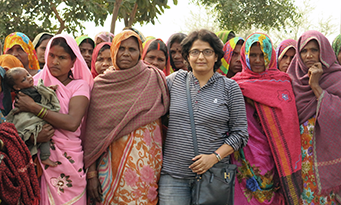Fighting for Freedom Timeline
Click on the Title and Date to Read More
The Journey Begins: 2000
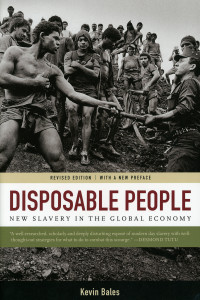
The groundbreaking book Disposable People: New Slavery in the Global Economy inspires activists from the U.S. and the U.K to form Free the Slaves (FTS) on March 2, 2000. The organization’s goals: research global slavery, create worldwide awareness, catalyze governmental responses and launch grassroots anti-slavery projects in vulnerable communities where trafficking is worst.
Sounding the Global Alarm: 2001
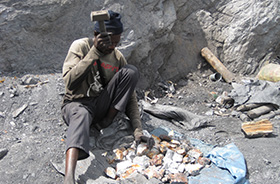
FTS assists U.K. documentary filmmakers in the production of Slavery: A Global Investigation. The exposé airs on HBO in the U.S. and Channel 4 in the U.K. The film won a Peabody Award for distinguished achievement and meritorious public service, and an Emmy Award for outstanding research.
Sowing the Seeds of Freedom: 2001
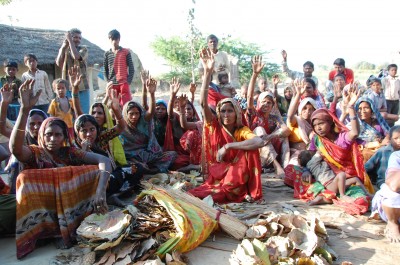
FTS establishes its first formal agreement with a front-line community organization to liberate slaves in India, help them rebuild their lives, and change the conditions that make community members vulnerable to slavery. This shapes the heart of the FTS approach: work with and through local organizations at a community level to create global change.
Fighting Child Cocoa Slavery: 2002
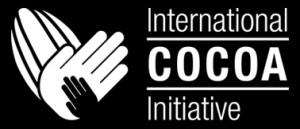
FTS becomes a founding member of the International Cocoa Initiative, an industry-funded coalition that finances improvements in education in African cocoa-producing communities in order to make children less vulnerable to enslavement at cocoa plantations.
Rallying the World’s Moral Authorities: 2003
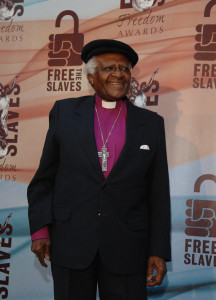
Nobel laureate Archbishop Desmond Tutu joins Free the Slaves as an international adviser. “It is my great pleasure to support Free the Slaves in your sound research, targeted advocacy, and direct support of grassroots anti-slavery groups around the world,” he writes.
Exposing How Traffickers Trick People Migrating for Work: 2005
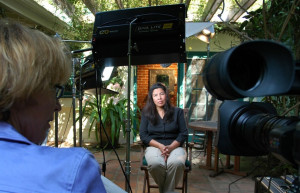
FTS releases the documentary Dreams Die Hard, exposing how people migrating to the U.S. to live the American dream are often trapped in slavery instead. The film wins top audience honors at the Telluride Mountain Film Festival.
Partnerships Formed on Three Continents: 2005
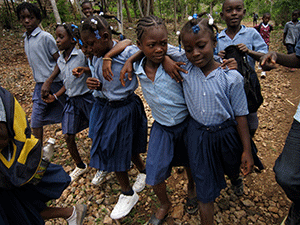
The grassroots front-line work of FTS expands to include countries in Asia, Africa and the Americas. Working in formal partnerships with established community-based organizations, FTS provides technical skill-building training and financial support to front-line activists in trafficking hot spots.
Demonstrating that Slavery Can Be Overcome: 2006
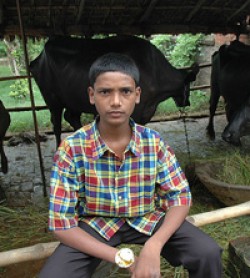
FTS releases the film Freedom and Beyond, exposing child slavery in India’s rug industry and showcasing efforts to rescue, rehabilitate and return children to their homes. The film is distributed to every U.S. embassy worldwide as a training tool.
Fostering Collective Action: 2007
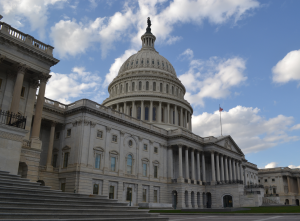
FTS and other leading anti-slavery organizations launch The Action Group to End Human Trafficking and Modern-Day Slavery (now known as The Alliance to End Slavery and Trafficking – ATEST). The policy coalition coordinates Washington advocacy efforts for increased funding and tougher regulations to fight slavery.
Global Thought Leadership: 2007
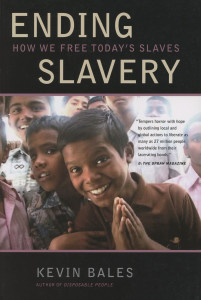
FTS publishes the book Ending Slavery, a road map for what governments, businesses, religions, students and others can do to combat slavery. Former President Bill Clinton holds up the book at his annual Clinton Global Initiative conference touting it as the blueprint for action to eradicate slavery throughout the world. The book wins the prestigious 2011 Grawemeyer Award for Ideas Promoting World Order.
Creating Sustainable Freedom: 2008
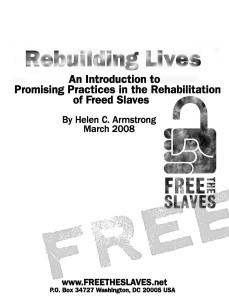
FTS publishes a field manual on promising practices in the rehabilitation of freed slaves: Rebuilding Lives. The manual stresses that survivors can be vulnerable to re-enslavement if they don’t receive proper physical, psychological, educational and vocational support.
Honoring Heroes of the Anti-Slavery Movement: 2008
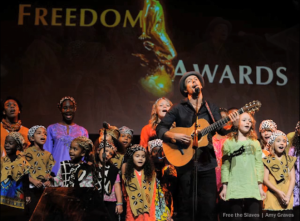
FTS launches the Freedom Awards to publicize the work of anti-slavery innovators and attract new support for the anti-slavery movement. Award winners receive specialized training and funding to expand their work. Televised awards programs in Los Angeles feature authors such as Isabel Allende, athletes such as Emmitt Smith, musicians such as Jason Mraz and the Agape Choir, and actors such as Forest Whitaker, Demi Moore, Ashton Kutcher, Camilla Belle, Virginia Williams and Vincent Kartheiser.
Revealing Slavery’s Impact in America: 2009
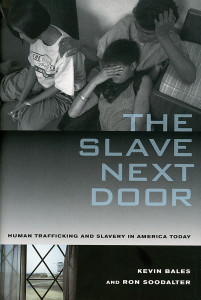
FTS publishes The Slave Next Door, an exposé on human trafficking and slavery in America today. The book documents how slaves are all around us, hidden in plain sight – in restaurant kitchens, at construction sites, on landscaping crews, and in private homes a domestic servants.
Showing the Human Face of Slavery: 2010
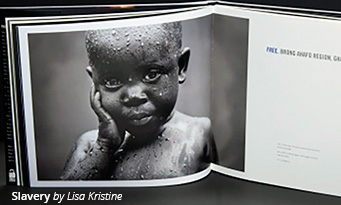
FTS publishes the book Slavery, a collection of fine art photos taken at FTS front-line projects by the acclaimed humanitarian photographer Lisa Kristine. Lisa’s TEDx talk about her experience, Photos that Bear Witness to Modern Slavery, has been viewed more than 2.8 million times.
Spreading the Word about What Works: 2010
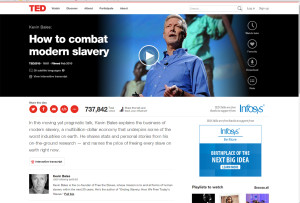
FTS Co-founder Kevin Bales speaks at the prestigious TED conference in California. His presentation, How to Combat Modern Slavery, has been viewed online by more than 1 million people.
Record-Breaking Rescue: 2012
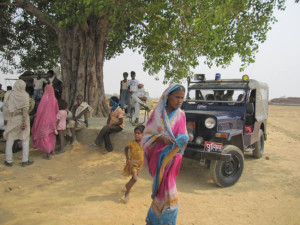
One of the largest rescues in FTS history occurs in India: 27 adults and 24 children from the village of Sakdouri are freed in one day from enslavement at a brick kiln, thanks to intervention by FTS and our front-line partners. “I’m running to freedom,” one man shouted as he raced to trucks that would take him home.
Singing Songs of Freedom: 2012

Musician and FTS supporter Esperanza Spalding organizes our first New York fundraising concert, featuring Paul Simon, Bobby McFerrin, Gretchen Parlato and a cameo presence by Prince.
Focusing on Communities: 2013
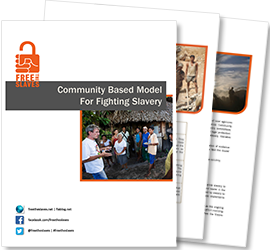
FTS formalizes its Community Model for Fighting Slavery, designed to identify key factors that make people vulnerable and key interventions that can help people break free and stay free. The basic approach is to create assets that offset vulnerabilities: educate about rights and risks, organize community groups against slavery, strengthen household security, liberate those in slavery, and increase the costs and risks to perpetrators.
Building a Movement: 2013
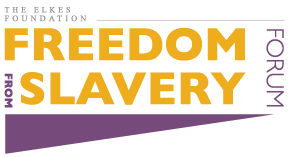
FTS and other leading anti-slavery organizations convene the Freedom from Slavery Forum, an annual gathering designed to create a collegial space where leaders can coalesce, create partnerships, discuss promising practices, and develop a shared agenda for action. FTS serves as the forum secretariat.
Liberating Child Slaves in Africa: 2013
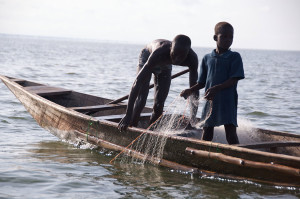
FTS and its front-line partners conduct one of Ghana’s largest rescues of child slaves: 16 children are rescued from dangerous conditions on Lake Volta fishing boats.
Award-Winning Grassroots Partners: 2013
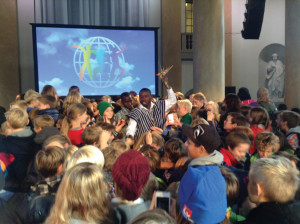
FTS front-line partners in Ghana and Nepal win coveted awards for their work. More than two million kids vote to award James Kofi Annan of Challenging Heights in Ghana the World’s Children’s Prize, and the group Shakti Samuha in Nepal wins Asia’s top human rights honor, the Ramon Magsaysay Award.
See all awards received by FTS and our partners here.
Evaluating our Impact: 2014
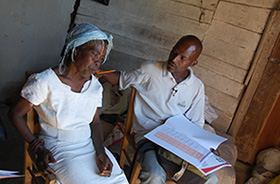
FTS develops an innovative set of data collection tools for anti-slavery field programs and begins a rigorous three-year evaluation of our community-based anti-slavery model in six front-line countries. The groundbreaking techniques evaluate improvements in the organizational strength of our front-line partners, the ability of community resilience and resistance to confront traffickers and overcome slavery over time, and reductions in slavery in the communities we help.
See results of our three-year study here and all our research publications here.
Connecting Abolitionism Past and Present: 2014
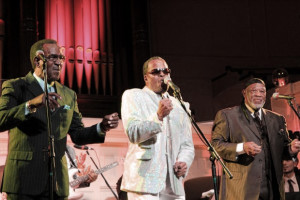
FTS supporters gather for a benefit concert by The Impressions at Plymouth Church in Brooklyn, a sanctuary that helped slaves escape in the 1800s via the Underground Railroad, underscoring today’s effort to finish the job that earlier abolitionists started.
A related event at the Brooklyn Historical Society featured FTS Board Member and Harvard Professor Timothy Patrick McCarthy, an expert on the abolition movement, and Loretta Lynch, who would soon become U.S. Attorney General in the Obama Administration.
Removing Slavery from American Products: 2015
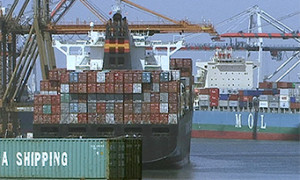
FTS advocacy helps prompt members of Congress to introduce the groundbreaking Business Supply Chain Transparency on Trafficking and Slavery Act. The bill would require major U.S. companies to publicly disclose measures they are taking to prevent human trafficking, slavery and child labor in their supply chains. Though the bill did not pass, FTS continues talks with Congress to craft corporate transparency and accountability legislation.
Breaking New Legal Ground: 2015
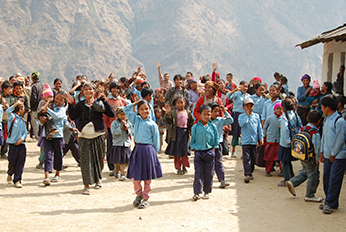
Advocacy by FTS partner organizations prompts Nepal to outlaw slavery in the country’s new constitution. The constitution says that every person has the right to be protected from trafficking and slavery. It also ensures the right to compensation for trafficking survivors.
Promoting the Power of Partnership: 2015
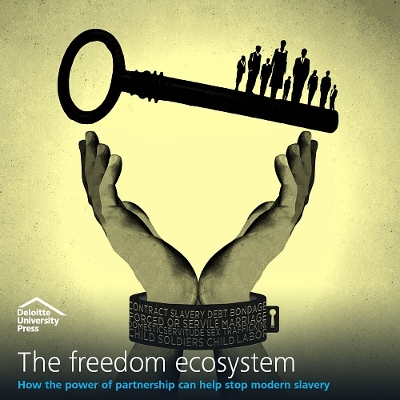
FTS and Deloitte collaborate to publish The Freedom Ecosystem: How the Power of Partnership Can Help Stop Modern Slavery. The report assesses the state of the anti-slavery movement and recommends actions to increase impact.
Ten Thousand Slaves Walking Free: 2015
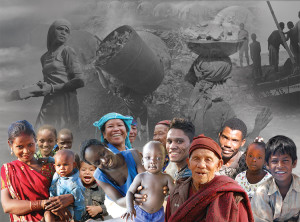
FTS marks its 15th birthday with news of a historic milestone: FTS and its partners have freed more than 10,000 slaves and have educated more than 100,000 vulnerable villagers to prevent their enslavement.
January 2020 milestone update for our 20th birthday: more than 14,000 enslaved people freed, more than 650,000 villagers educated, more than 300 traffickers brought to justice.
Scaling Up Impact: 2017
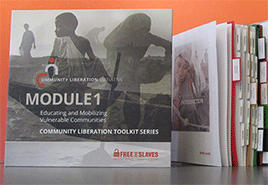
Our Community Liberation Initiative is launched to integrate anti-trafficking activities into the work of large international development organizations. Training manuals teach community development workers how to spot slavery and what to do about it while they work on healthcare, sanitation, education, microenterprise entrepreneurship, gender equality and other projects in communities where human trafficking is also a problem.
Standing Up and Speaking Out: 2018
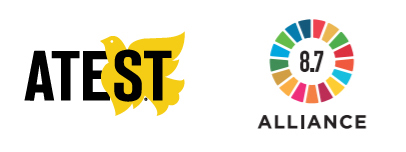
Our global advocacy leadership expands. We become co-chair and secretariat for the Alliance to End Slavery and Trafficking (ATEST) in the U.S. and we’re appointed as a civil society representative to the Global Coordinating Group of Alliance 8.7, the U.N. effort to achieve the end of forced and child labor as a Sustainable Development Goal.
Establishing Global Principles and Goals: 2018-2019
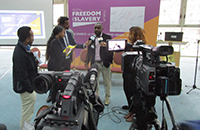
FTS leads a global collaboration to establish principles and goals for governments, businesses, unions and civil soceity organizations in the Bangkok Statement, adopted at the Freedom from Slavery Forum in Thailand in 2018, and a subsequent set of action steps developed at the Freedom from Slavery Forum in Ethiopia in 2019.
Alliance 8.7 Accountability Framework Unanimously Adopted: 2022
The Alliance 8.7 Global Coordinating Group unanimously adopts the Accountability Framework for Pathfinder Countries. Free the Slaves initiated the development process for the Accountability Framework and participated in drafting this critical document in collaboration with the Alliance 8.7 Secretariat and the Monitoring Working Group. Learn more about the process and download Accountability Framework on our Policy and Advocacy Page

